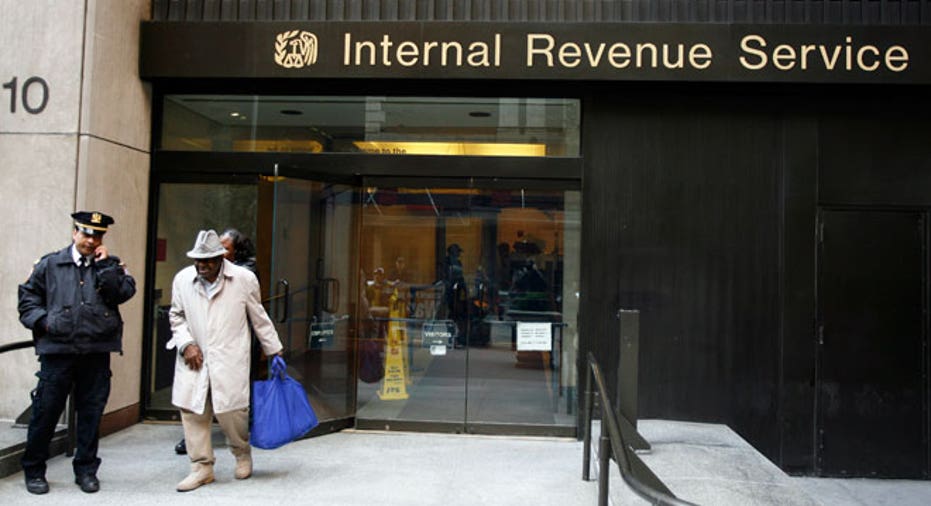Five Tax Tips for Non Filers

If you haven’t filed your tax return for many years, you are likely nervous and find yourself glancing over your shoulder periodically to see if Uncle Sam has caught up with you. Oftentimes folks in this situation continue not to file because they don’t want to draw attention to themselves by suddenly showing up with a tax return.
Take my client George: He hired me after not filing returns for more than 20 years and was able to fly under the radar by moving frequently. He didn’t have any correspondence with the IRS and wasn’t particularly worried about an agent showing up on his doorstep demanding payment. He was more worried about the person sitting next to him—his fiancé who refused to get married until he sorted out his tax issues.
Amazingly, George had all of his records going back 20 years and they were organized beautifully. I prepared the income tax returns and with trepidation, we reviewed them. I gave him good news and bad news. The good news was that with the exception of one tax year, the returns showed refunds totaling $65,000. The bad news is that once a refund is older than three years, they can no longer be claimed and can’t be applied to other year income tax liabilities. That explains why the IRS wasn’t actively looking for him.
Not all non filers are as lucky as George. You may have the IRS jumping on you about filing or you might be missing records. You may also end up owing quite a bit to Uncle Sam. Here are some tips to help navigate the process:
Don’t be afraid to pick up the phone and call the IRS. The IRS will receive you like the prodigal son or daughter that you are. I have never seen it threaten a cooperative person with jail. The agency will provide you time to file your unfiled tax returns.
If you do not want to contact the IRS directly, you can hire a tax professional to handle the situation. Sign IRS Form 2848 Power of Attorney, which enables the tax pro to speak on your behalf. The tax pro can then find out if there are any Substitute Filed Returns (SFRs) on file and find out which years need to be filed. If the account is in collections, the pro may be able to speak with that department about a suspension of collection activity while the returns are being prepared.
Don’t panic if you don’t have every record. Not everyone walks in to my office with a box full of records the way George did. Here again, the IRS can be of some assistance. You or your tax pro can request transcripts of third party documents. Every Form W2, 1099, K-1, 1098 (mortgage interest) that would have been sent to you over the years will be available to the tax pro, and your bank records may fill in the blanks to come up with a valid tax return.
If you are self-employed and have no records and need to file a business tax return or a Schedule C, an IRS auditor recently recommended using industry standards. There are several web sites that have listings by type of business of income and expenses by locale and are fairly reasonable standards that can be applied to your business, especially if you can provide a key element such as total sales for the year.
Don’t worry over bills for unfiled tax years. These statements are usually ridiculously high and based on substitute filed returns (SFR) created by the IRS. Once you file a correct tax return for the year in question, the SFR and the accompanying tax bill disappears. The resulting liability may also disappear or be reduced substantially or be replaced with a refund. It happens more often than not.
Know that penalties can be abated. For reasonable cause, penalties can be removed. George had gone through an excruciatingly painful divorce 20 years ago and ended up with custody of his son. He sunk into a severe depression and did not pay enough attention to his business. For these reasons the IRS abated the failure to file penalties. Note that interest accumulated on tax liabilities cannot be abated.
Take the slow and steady approach. Past due balances can be intimidating. If you owe a large sum, file the tax returns in question. It doesn’t matter if you can’t pay when you file--you will never go to jail for inability to pay. But there is always the possibility of landing in jail for failing to file.
Approximately eight weeks after filing, you will receive a bill that will detail the interest and penalties as well as the tax. The 10-year statute of limitations on collections will begin running from the date the tax is assessed. You could be filing your 1992 tax return, but if you file it tomorrow and the tax is assessed the next day, you’re looking at 10 years from the assessment date that the IRS will be looking for payment. There are solutions for dealing with insurmountable balances: being deemed uncollectible, creating an installment agreement, or if you qualify an offer in compromise.



















